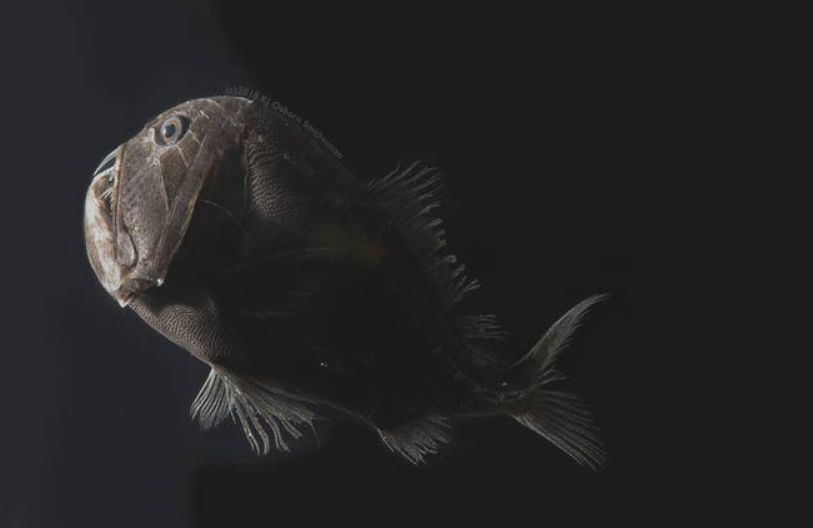Deep in the oceans, there are a series of ultra-black fish that absorbs almost all the light that reaches them, allowing them to effectively hide from predators. But not enough: a team of American scientists has just discovered them.
Researchers at the Smithsonian Institute and Duke University, responsible for the discovery argue that this method seems to be more efficient than those used by other animals and that the discovery could help make future advances in technology optics and camouflage.
These 16 different species with the little relationship were found to absorb 99.5 per cent of all light, making them look like little more than silhouettes even in the direct light.
Where the Sun does not reach
All of these fish were found living at ocean depths below 200 meters, beyond the reach of sunlight. Many animals have adapted to this environment by producing their own light, called bioluminescence, which can be used to attract food or mates or to illuminate predators and prey hiding in the dark.
These species bet on a different survival strategy, and it seems to be effective: camouflage themselves with the black background. Absorbing almost every photon of light that hits them is a great way to increase your chances of not being eaten and of not scaring your own prey.
One of the found specimens, Anoplogaster cornuta uses its camouflage to prevent predation and, as a last resort, its detachable scales can let you escape if caught.
The Pacific Black Dragon (Idiacanthus antrostomus), meanwhile, is a fearsome-looking creature, with transparent teeth and anti-glare, combining ultra-black skin with a bioluminescent lure. In this way, its own light is not reflected on its skin to drive away from the prey.
The reason? A human pigment
The key to this camouflage is melanin, a light-absorbing pigment that also naturally darkens human skin. It turns out that these fish have very high levels of melanin in their skin, and it is arranged in a particularly special way.
Pigment cells are made up of densely packed compartments called melanosomes, which waste very little light due to their size, shape, and position. What they do not absorb themselves, they are diverted to other melanosomes.
“Indeed, what they have done is make a super-efficient and superfine light trap,” explains Karen Osborn, principal investigator of the study, which is published in the scientific journal ‘Current Biology‘.” The light does not bounce, the light does not pass. It only enters this layer, and it leaves.”
According to New Atlas, the same general principle applies to other ultra-black materials, both natural and artificial, but scientists argue that this version for fish is much more efficient.
The melanin-based system used by fish is much smaller and mechanically simpler. That could help design future ultra-black materials that are much thinner, more durable, and less expensive than those currently available.
These materials could serve as optical instruments that reduce unwanted glare in space telescopes, for example, or in camouflage technologies.
